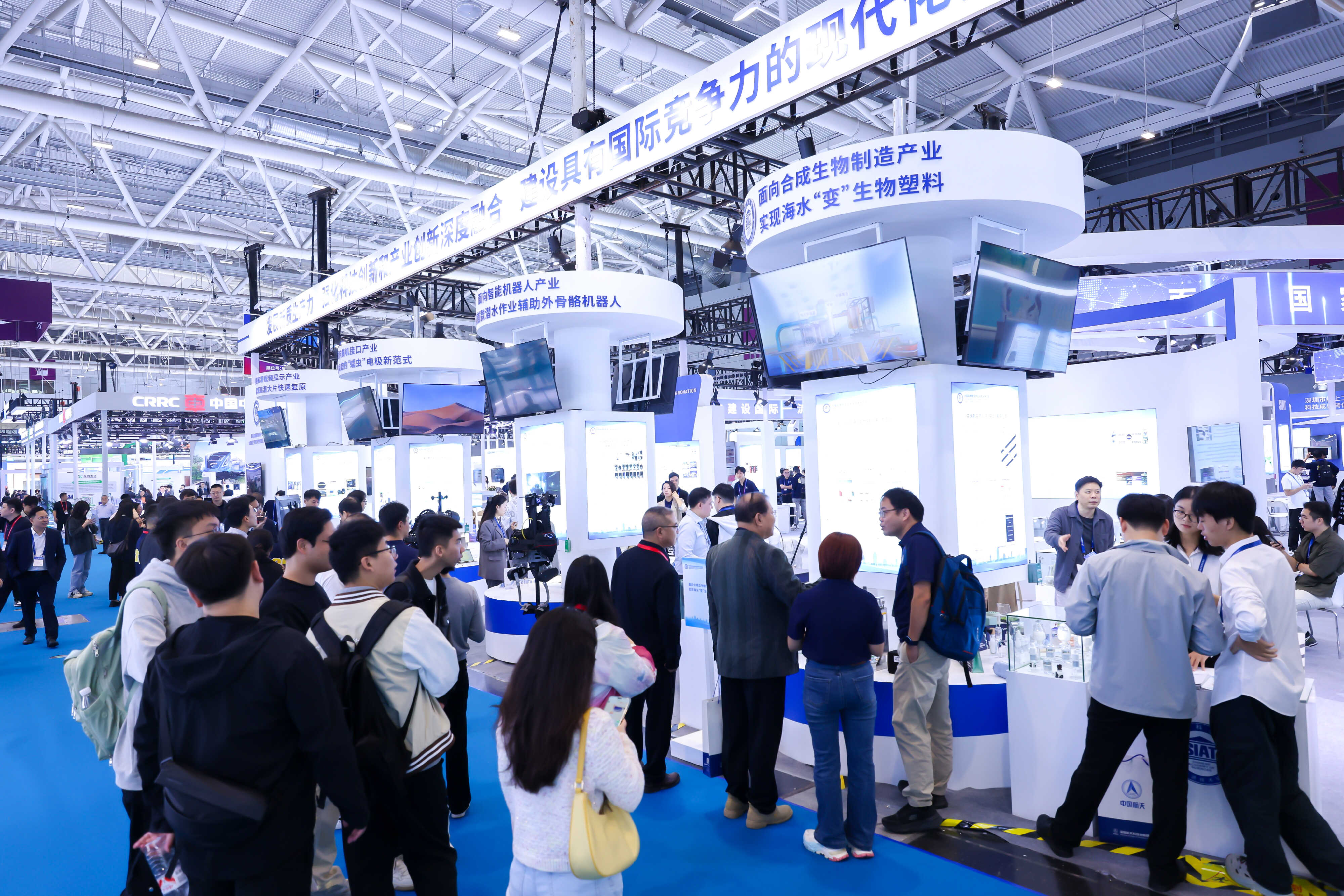
Newsroom
A technology that converts seawater into fully biodegradable plastic was unveiled at the 27th China Hi-Tech Fair (CHTF) in Shenzhen, Guangdong province. The innovation, developed by a research team at the Shenzhen Institutes of Advanced Technology (SIAT) of the Chinese Academy of Sciences, offers a sustainable solution for plastic production and carbon capture.
The process involves capturing carbon dioxide directly from seawater and transforming it into formic acid. This formic acid then serves as a building block for bioplastic monomers, such as succinic acid and lactic acid. These monomers are subsequently synthesized into biodegradable plastics, including polybutylene succinate and polylactic acid.
"We have constructed and validated the 'Artificial Ocean Carbon Cycle System' for the first time, directly realizing the complete technological chain from 'seawater to chemicals', truly bridging the entire process of 'carbon capture — conversion — creation'," said GAO Xiang, the project leader and associate researcher at SIAT.
Prototypes, including straws, have already been produced using this method.
The technology has broad potential applications beyond biodegradable plastics, including carbon dioxide capture and resource utilization, marine bio-manufacturing, biofuels, pharmaceutical intermediates, and the production of high-value chemicals.
The CHTF, a leading platform for showcasing high-tech advancements in China, is currently featuring over 5,000 new technologies, products, and achievements.

The 27th China Hi-Tech Fair (Image by SIAT)

Artificial Ocean Carbon Cycle System (Image by SIAT)
